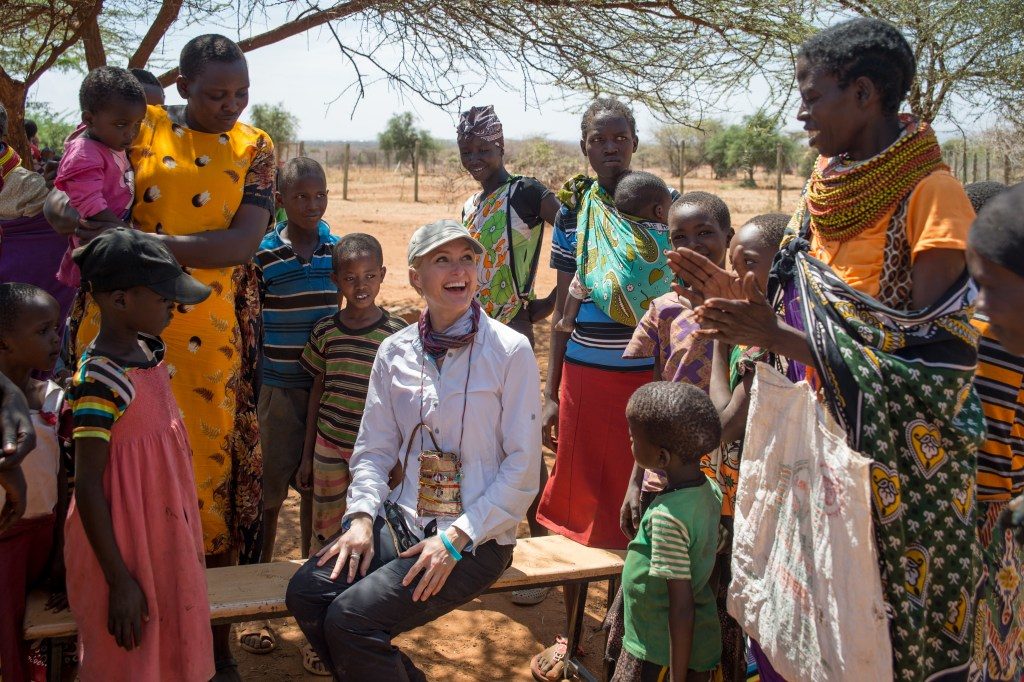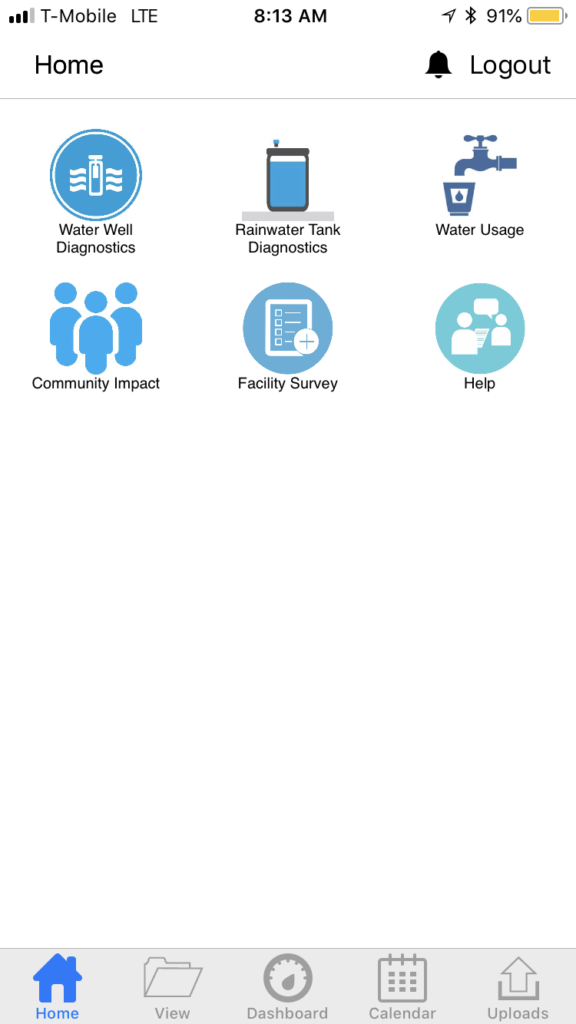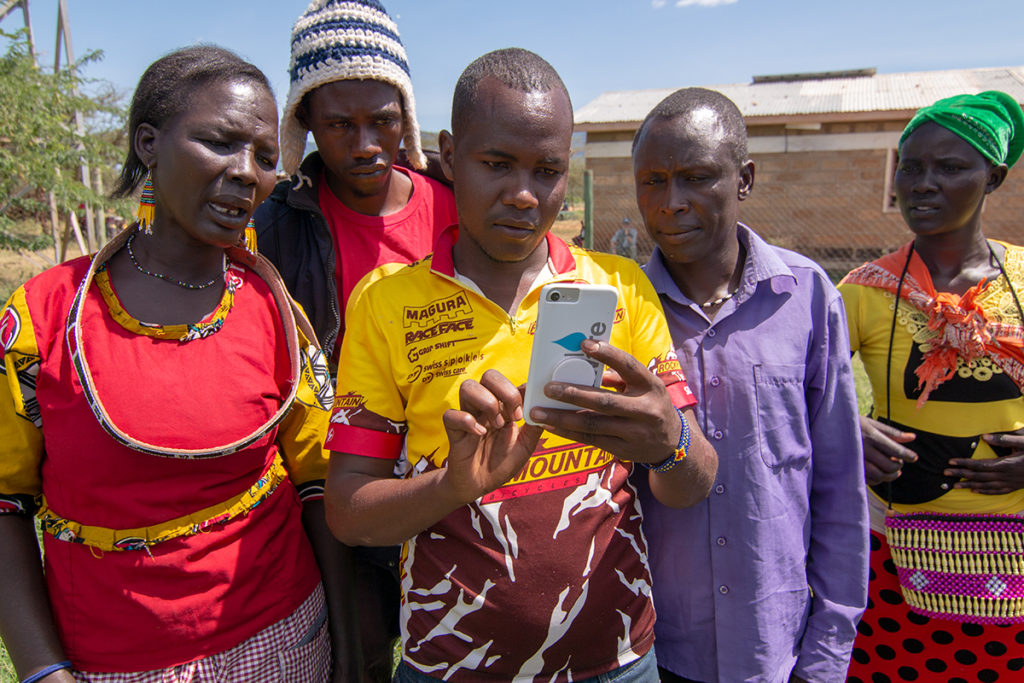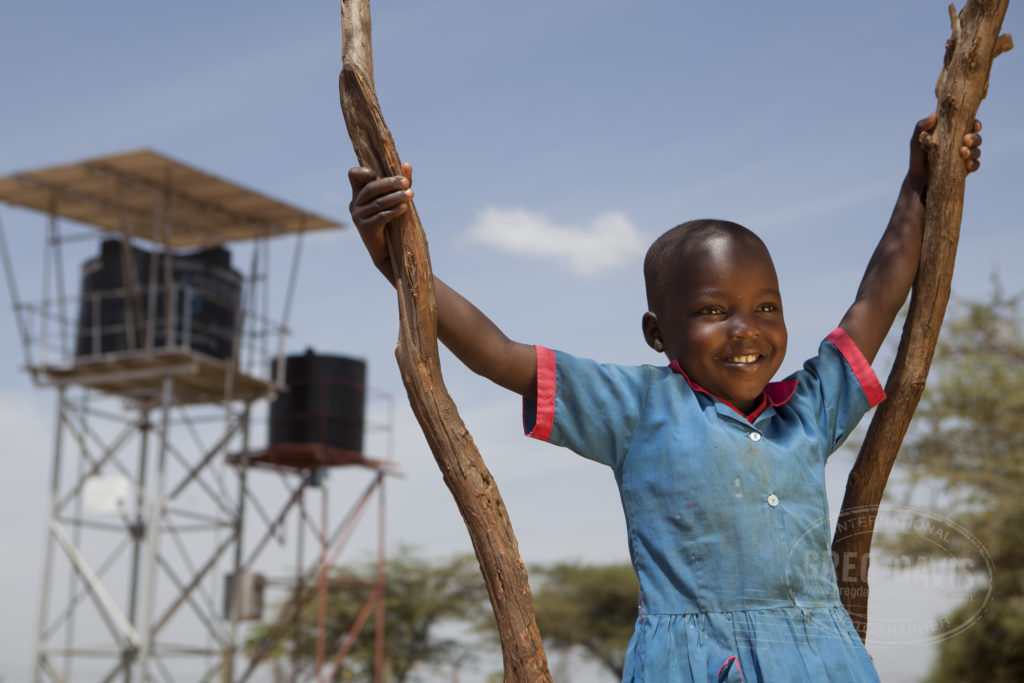Sarah Evans is going Well Beyond to lead the way in the worldwide clean-water movement.
By Shelley Seale

Most of us take for granted the water we drink, bathe in, cook with, spray our plants with...and waste. But what would our world look like if six out of 10 faucets suddenly stopped working? What if women had to spend six hours a day traveling to collect clean water, or if a child died from a waterborne disease every 90 seconds?
These are unthinkable scenarios yet a fact of everyday life in much of the developing world. Millions of families in Africa have no reliable source of clean water—but that’s something Sarah Evans is out to change.
Since founding the nonprofit Well Aware in 2009, Evans, along with her team, has funded and implemented life-saving water systems in 54 communities in East Africa. But it’s not nearly as simple as just digging wells or installing water systems. Sixty percent of water projects in Africa don’t work, including many installed by nonprofit organizations.
“Everywhere you look, there are broken wells,” Evans says, noting too many well-meaning organizations build wells without considering what will happen if or when they break or training local communities how to operate and maintain them properly. “Originally, I set out to improve lives, but I realized I needed to improve the industry.”
As part of her journey to do just that, Evans is making some big changes. She’s stepping down as CEO of Well Aware to become CEO of her new for-profit social-good company, Well Beyond, which signed its first client in August 2017. She will remain on the board of directors for Well Aware.
“Since only about 40 percent of water systems installed in Africa are functional, our sector struggles to find better ways to do this work—and Well Aware was doing it better,” Evans says.
In fact, Well Aware has a 100 percent success rate, an impressive statistic that led to many organizations approaching Well Aware for advice and guidance.
“The main reason for water-system failure is missing technical expertise,” Evans says. “The majority of water [nongovernmental organizations] have no technical staff at all, and the expertise is still very lacking in the regions we work. The technical expertise that Well Aware has cultivated and collected, we learned, is a rare and much- needed value for lots of other organizations.”
Evans turned to her own mentors as she considered how best to help other water projects and ultimately decided creating a separate and for-profit company was the best way forward.
“I realized this could be a great strategy for both the scaling and funding of Well Aware, as well as the dissemination of our model through other organizations to increase the overall industry success rate—and save donors and organizations a ton of resources,” Evans says.
 Well Beyond works with other organizations to evaluate, plan and enhance their water systems and infrastructure with field evaluations, project management and diagnostics. It also runs Well Aware’s projects, which Evans says allows the nonprofit to accommodate more projects per year with greater efficiency and lower cost. It also serves as a revenue stream, with Well Beyond contributing a percentage of profits to fund Well Aware.
Well Beyond works with other organizations to evaluate, plan and enhance their water systems and infrastructure with field evaluations, project management and diagnostics. It also runs Well Aware’s projects, which Evans says allows the nonprofit to accommodate more projects per year with greater efficiency and lower cost. It also serves as a revenue stream, with Well Beyond contributing a percentage of profits to fund Well Aware.
The newest initiative launched by Well Beyond is its diagnostic app. It was inspired by Evans’ work in the field in East Africa, where she visited a location that had an overflowing water tank.
“They were losing most of their water supply to the ground and were unable to diagnose the problem,” she recalls. “Of course, our technical team was there, and I watched as they walked the local water committee through checking the float-switch connection and reconnecting it, and all was resolved in about 15 minutes. I thought, ‘These communities need a diagnostic tool for such straightforward water-system issues that arise. This would save them so much time without water, and save them money in hiring technicians to drive to these remote locations to fix something that doesn’t really need high-level expertise.’”
The low-tech, patent-pending mobile app troubleshoots broken water systems and provides measurement and evaluation tools. The app also sends regular maintenance reminders via text and provides training.
“We see a lot of technological development in our industry that continues to take more ownership and knowledge of the water system away from the communities, even though we all know that the less ownership and knowledge a community has, the less likely the system is to last,” Evans says. “Our app does the opposite, and the [lives] of these water systems are going up as a result.”
Evans believes the most effective way to provide lasting, clean water is through direct contact with communities, real relationships with beneficiaries and a flexible model.
“It’s the only way,” she says, “to measure success and impact.”

Well Beyond plans to incorporate additional services to its current consulting work in the next few years. They include:
- hydrogeological services in East Africa: “The significant lack of technical expertise in developing countries is, in part, responsible for the very low success rate in the water-system sector. Our team of experts is
designing a ‘shop’ for professionally executed and reliable hydrogeological surveys in East Africa. This is in very high demand,” Sarah Evans says, noting all drilling projects must perform a hydrogeological survey before teams are allowed to drill.
- live-chat water support: "We are the Geek Squad of water,” Evans says. "In two to three years, we will be available for answers, guidance and troubleshooting for anyone anywhere with a water concern. This will integrate with our app.
- mobile water-quality analysis lab and services









